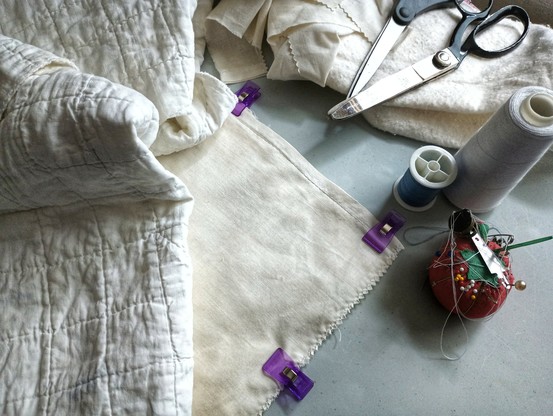Breathing Room: The Three Rs — Reduce, Repair, Recycle
[NB: check the byline, thanks. /~Rayne]
While waiting for the worst of the supply shock to hit consumers thanks to Trump’s misbegotten tariffs, I have been working on the three Rs.
Not reading, ‘riting, and ‘rithmetic but reduce, recycle, repair.
You may already have noticed the supply shock beginning wherever you live in your local stores. I had to hunt for flax seed last week; I knew flax was grown all over the world including the US, but for some reason I had it in my head this wouldn’t be a food product affected by the tariffs.
Nope, illusion shattered – the label on the packages I found show origin USA and Canada.
The price wasn’t out of line with expectations but I bet the next time I hunt for flax seed it will be more expensive even though some of it is likely grown in North Dakota and Minnesota.
Flax isn’t just a food product; the plant is also not just a source of fiber for fabric. It’s the source of linseed oil used in many applications including painting and wood finishing.
In other words, the ripple effect of tariffs on this one agricultural product could be widespread.
I haven’t gone looking for linen fabric but I imagine worse results because the US has very little if any linen fabric production even though the US grows flax seed.
The cost may not be as bad as imports from China since linen is grown and produced in northern Europe, but it’s still not going to be good if you rely on natural fiber fabrics.
Fortunately I anticipated the supply shock back in March. I bought an entire bolt of unbleached 100% cotton muslin while it was on sale, thinking I would use it for repairs and craft work over time.
That time is now. I am patching up a vintage muslin quilt, one too ratty for conservation techniques and too beloved to cut up for other purposes. It’s not a good weather project but it’s perfect for rainy days like we’ve had this week.

The next project I should take up is making covers for some old outdoor furniture cushions. I’ve had fabric squirreled away for a year now to freshen up some ratty-looking pads I can’t bring myself to trash. They’re polyester foam and fiberfill with a polyester-nylon cover – in other words they’re nothing but refined oil on its way to becoming a tax burden taking up space in a municipal landfill.
Ugh — I refuse to do that when I can simply recover and reuse them, especially when I can’t be certain there will be more new chair pads at the store due to the impending supply shock.
It’s going to be inconvenient for many of us if not downright painful — many families will struggle as the worst of the supply shock hits store shelves. But one of the effects should be a greater awareness about our consumption habits and how they affect the rest of the world. The climate may actually benefit from our reduced consumption of so many items requiring fossil fuels as both a raw material and fuel for production.
Let’s home this expanded consciousness has a long-term positive effect, not the least of which is the need for smarter and less corrupt governmental leadership — the kind that doesn’t tell businesses to “EAT THE TARIFFS” in all caps via social media when the tariffs look more like a shakedown and less like a rational, targeted instrument of effective policy.
What about you? Are you seeing the effects of the Trump supply shock? What are you doing to reduce, repair, recycle? Who can you help with the three Rs and how will you do it?
This is an open thread.

